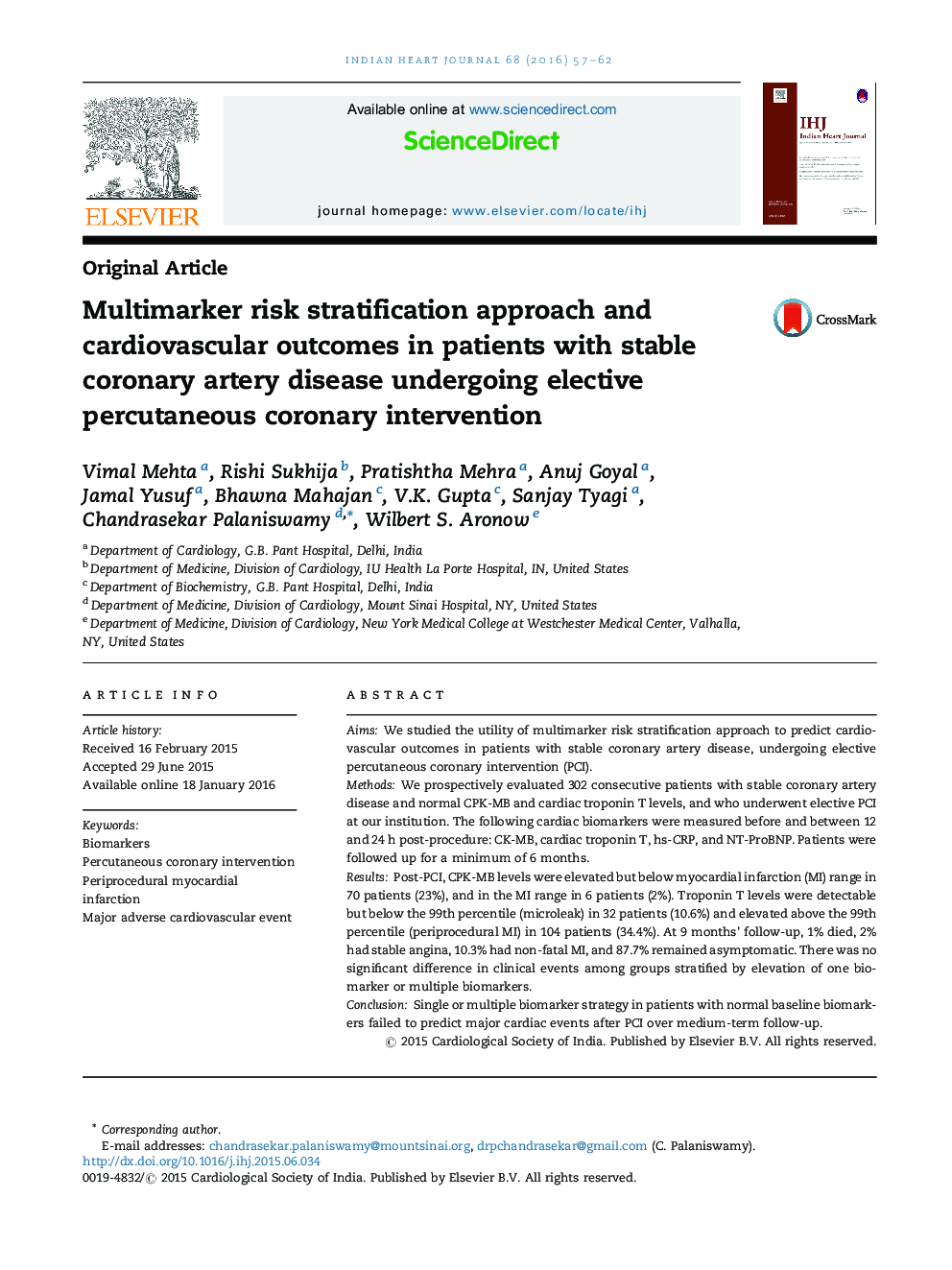| Article ID | Journal | Published Year | Pages | File Type |
|---|---|---|---|---|
| 2927520 | Indian Heart Journal | 2016 | 6 Pages |
AimsWe studied the utility of multimarker risk stratification approach to predict cardiovascular outcomes in patients with stable coronary artery disease, undergoing elective percutaneous coronary intervention (PCI).MethodsWe prospectively evaluated 302 consecutive patients with stable coronary artery disease and normal CPK-MB and cardiac troponin T levels, and who underwent elective PCI at our institution. The following cardiac biomarkers were measured before and between 12 and 24 h post-procedure: CK-MB, cardiac troponin T, hs-CRP, and NT-ProBNP. Patients were followed up for a minimum of 6 months.ResultsPost-PCI, CPK-MB levels were elevated but below myocardial infarction (MI) range in 70 patients (23%), and in the MI range in 6 patients (2%). Troponin T levels were detectable but below the 99th percentile (microleak) in 32 patients (10.6%) and elevated above the 99th percentile (periprocedural MI) in 104 patients (34.4%). At 9 months’ follow-up, 1% died, 2% had stable angina, 10.3% had non-fatal MI, and 87.7% remained asymptomatic. There was no significant difference in clinical events among groups stratified by elevation of one biomarker or multiple biomarkers.ConclusionSingle or multiple biomarker strategy in patients with normal baseline biomarkers failed to predict major cardiac events after PCI over medium-term follow-up.
